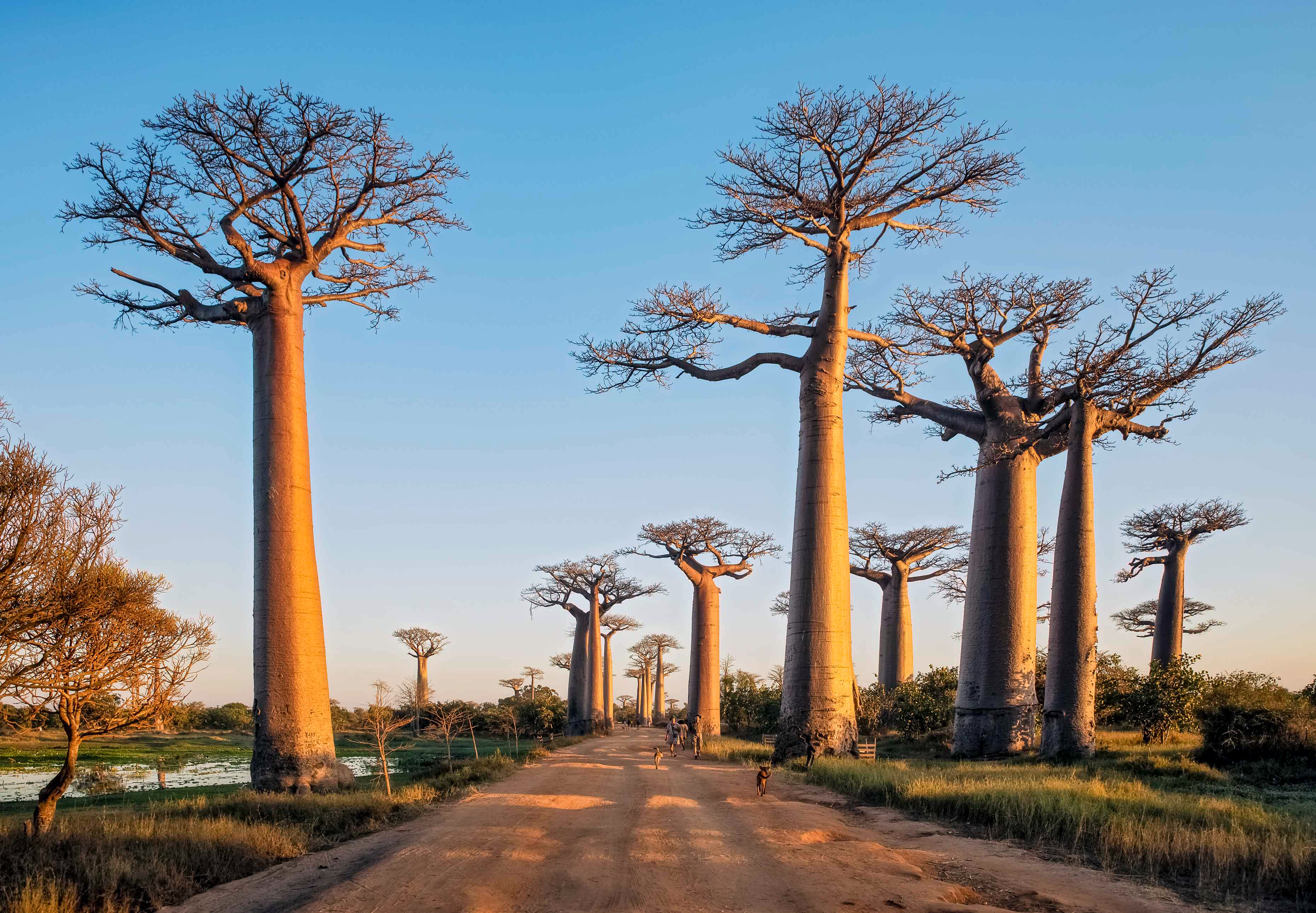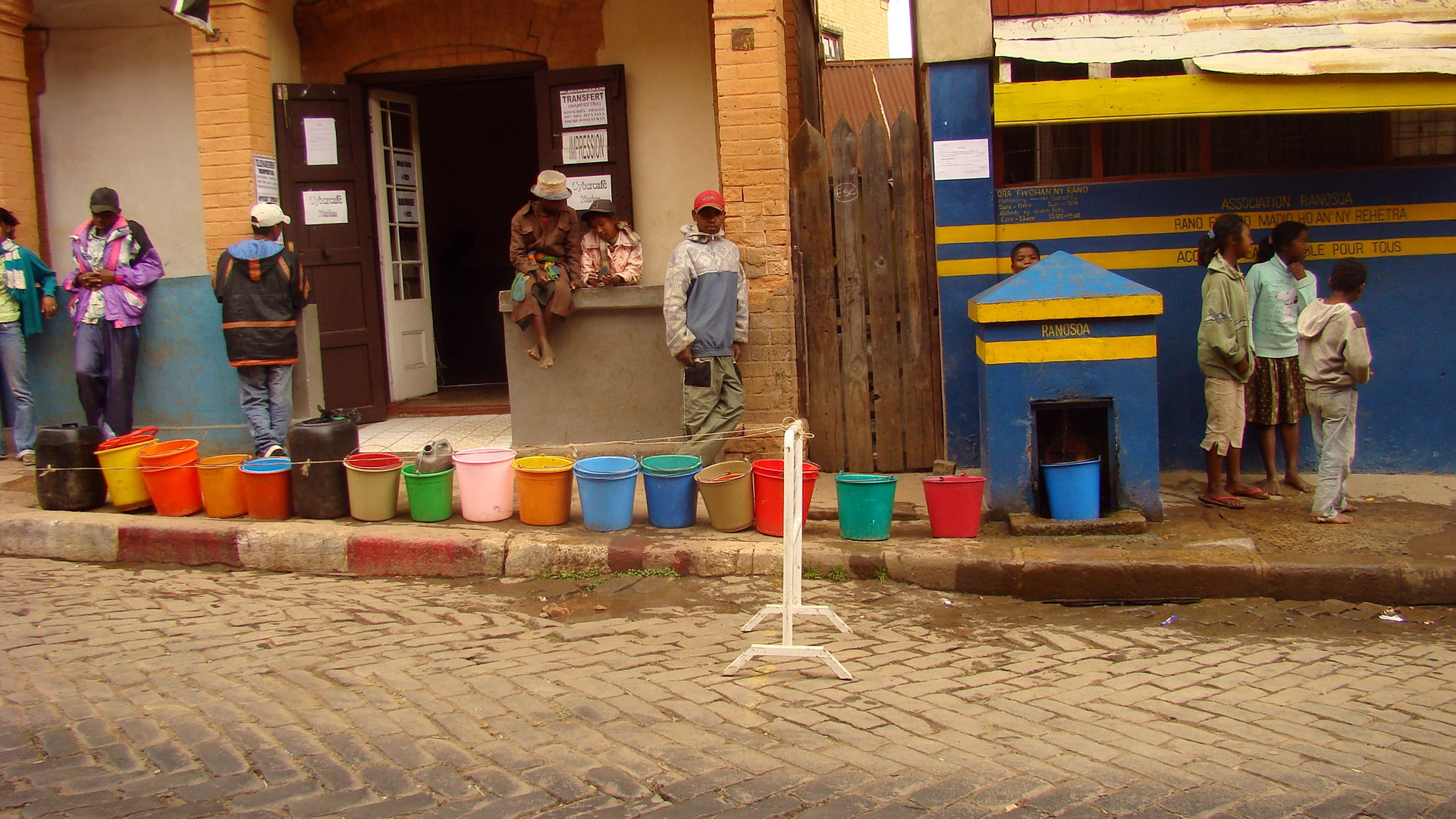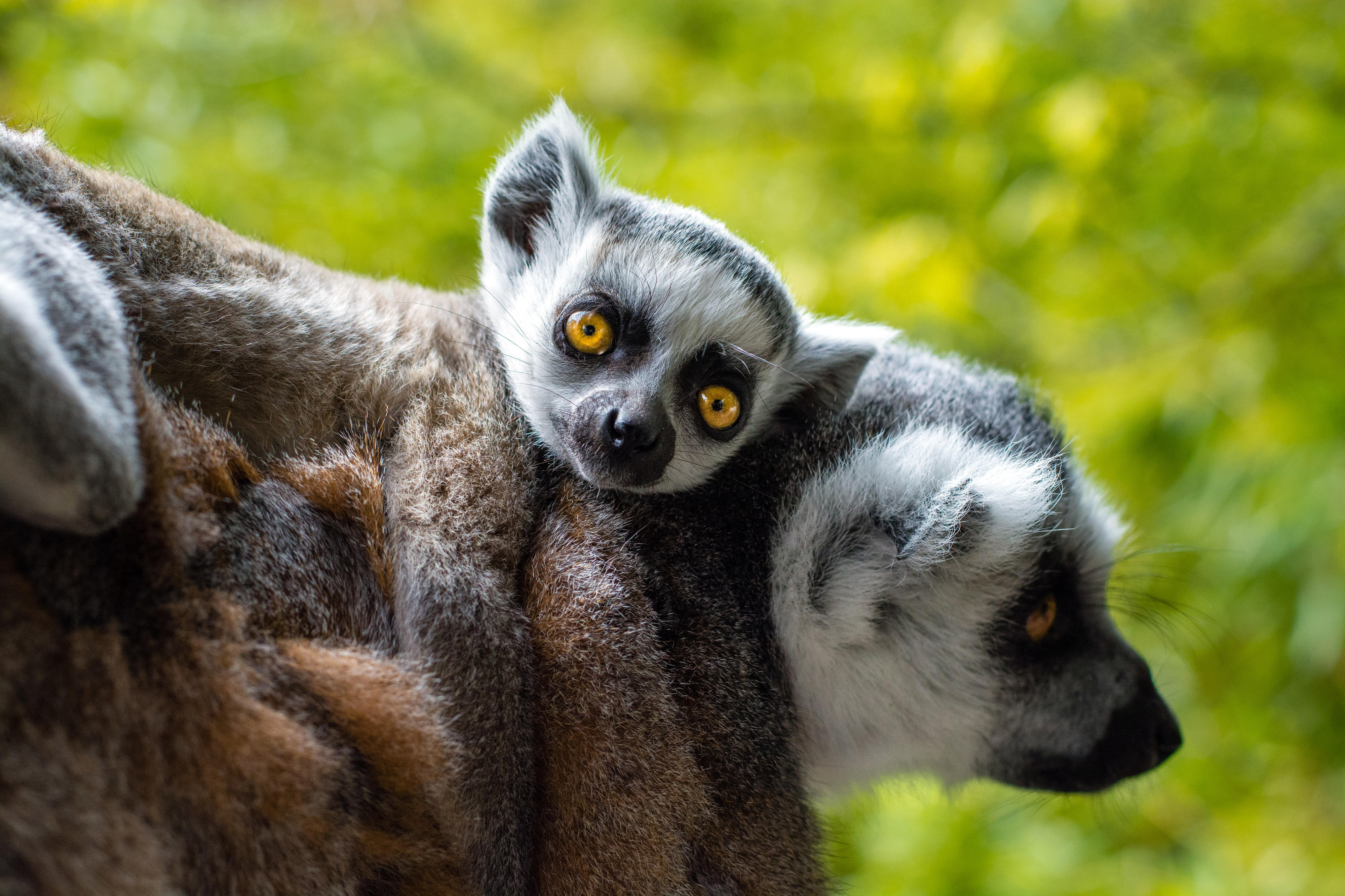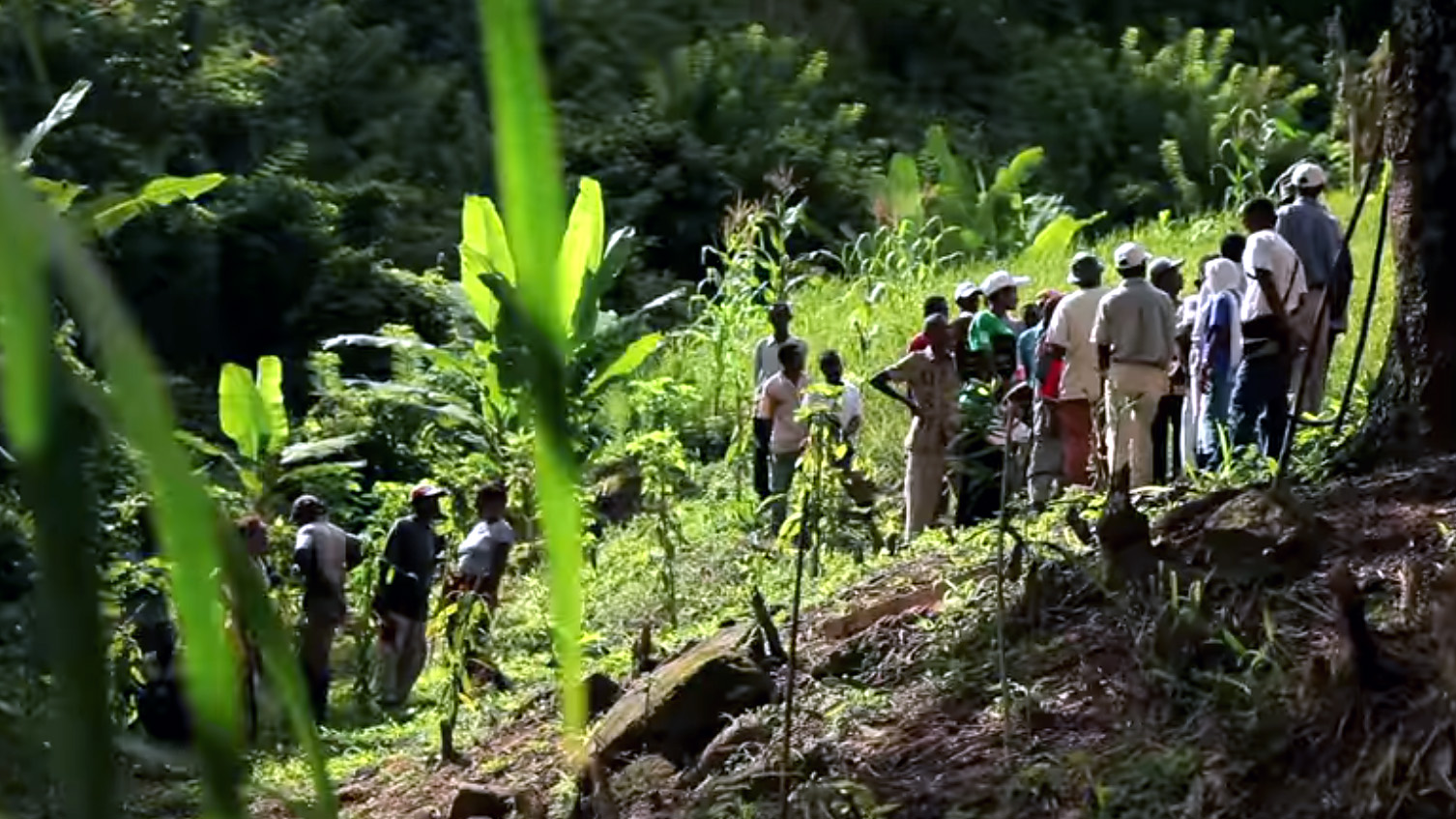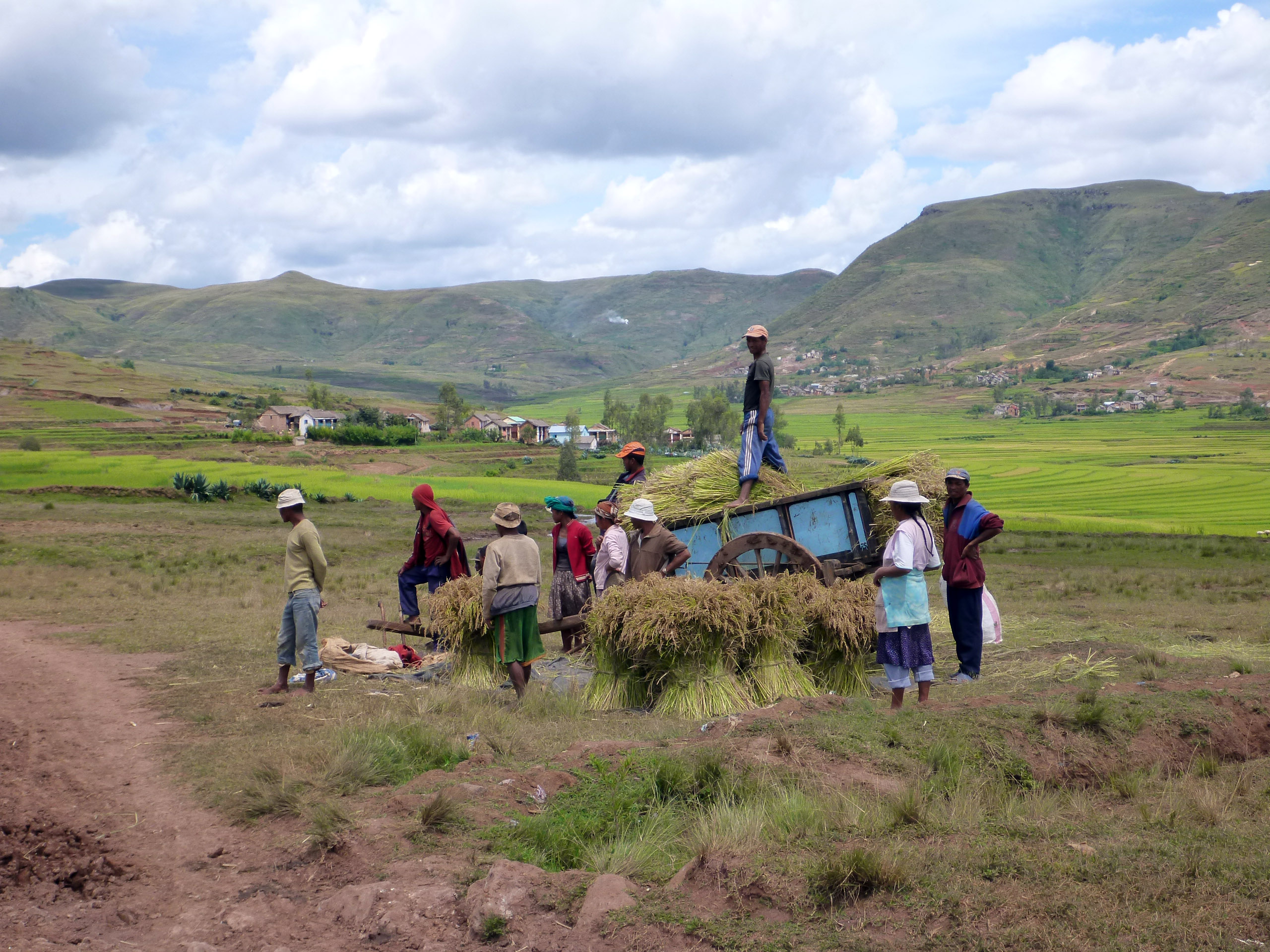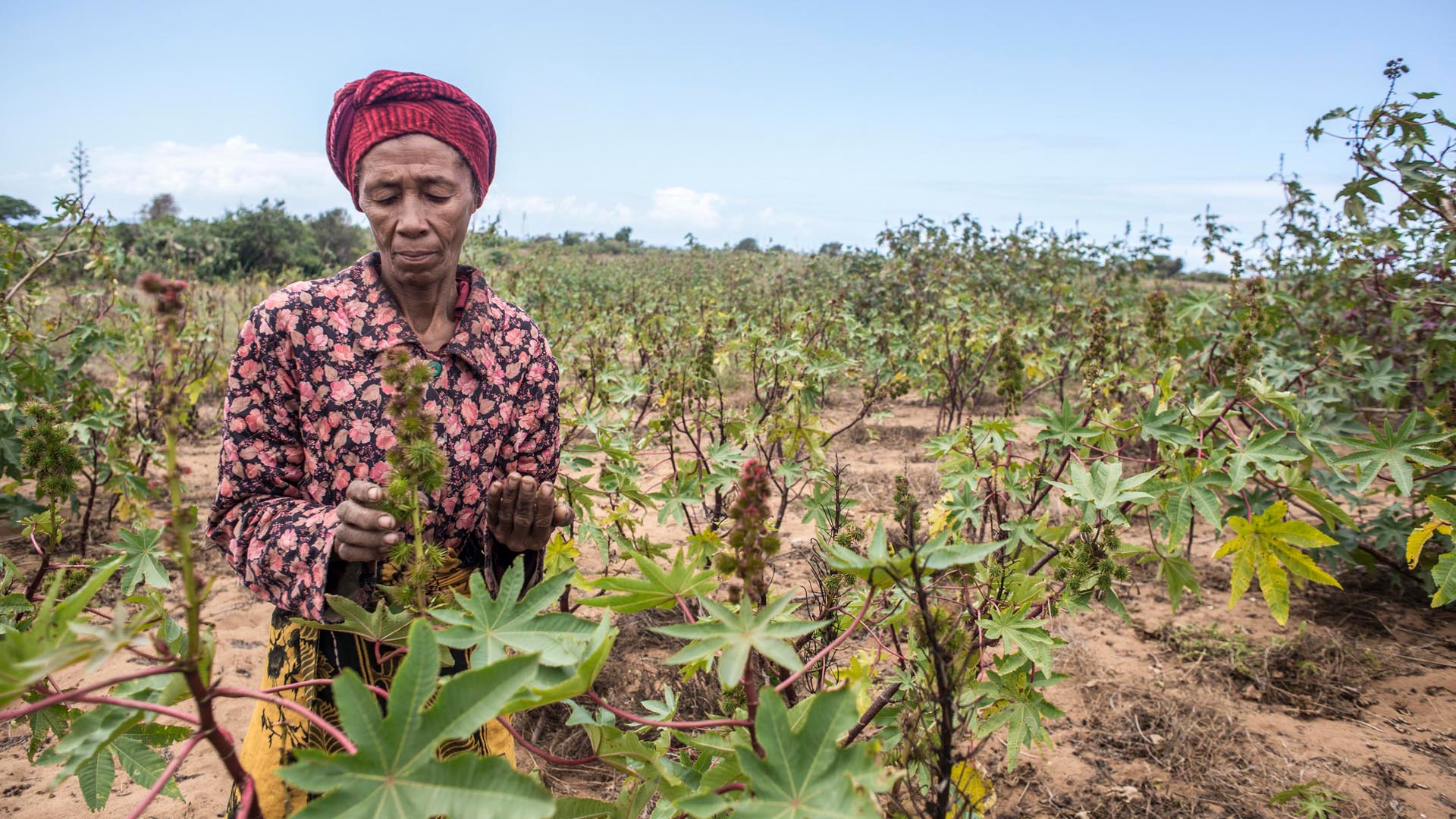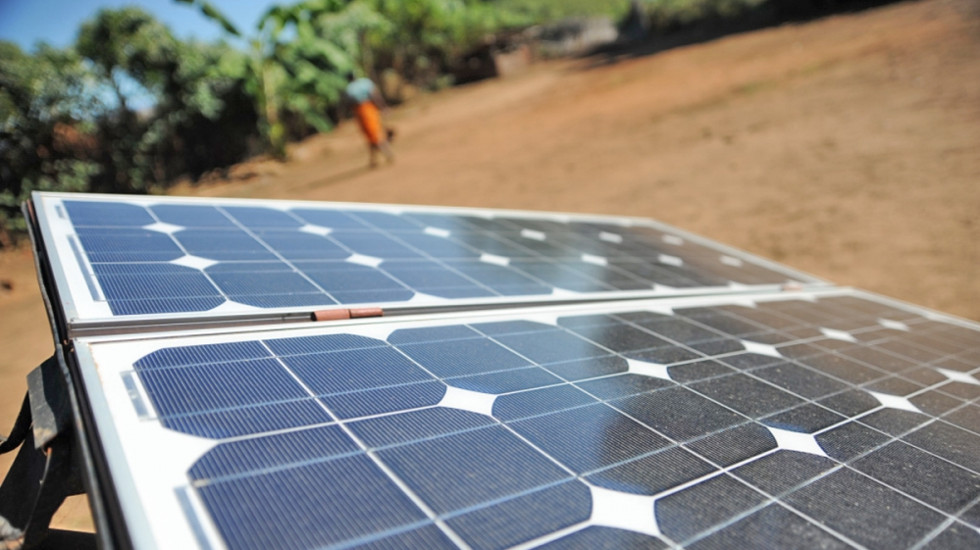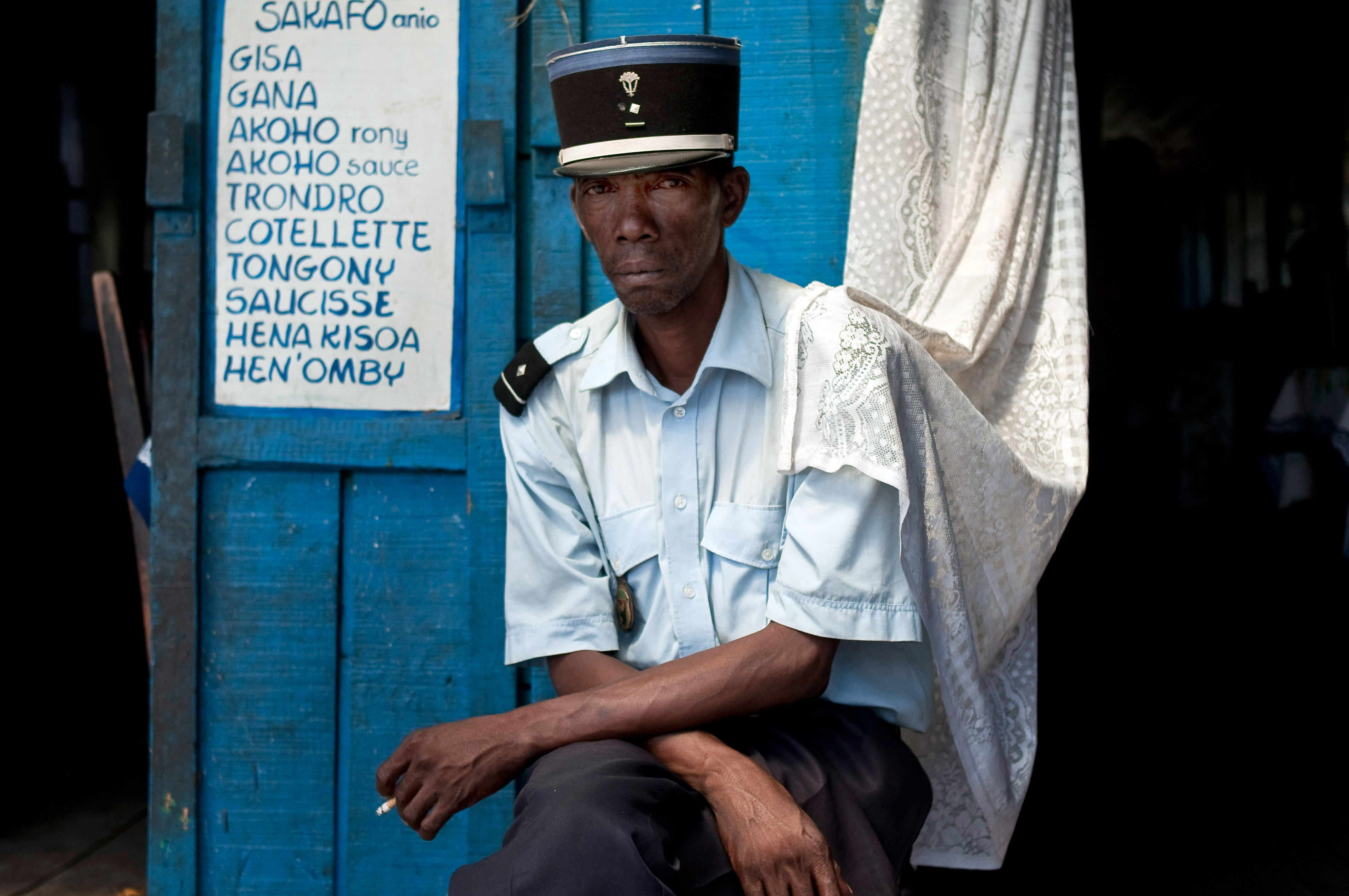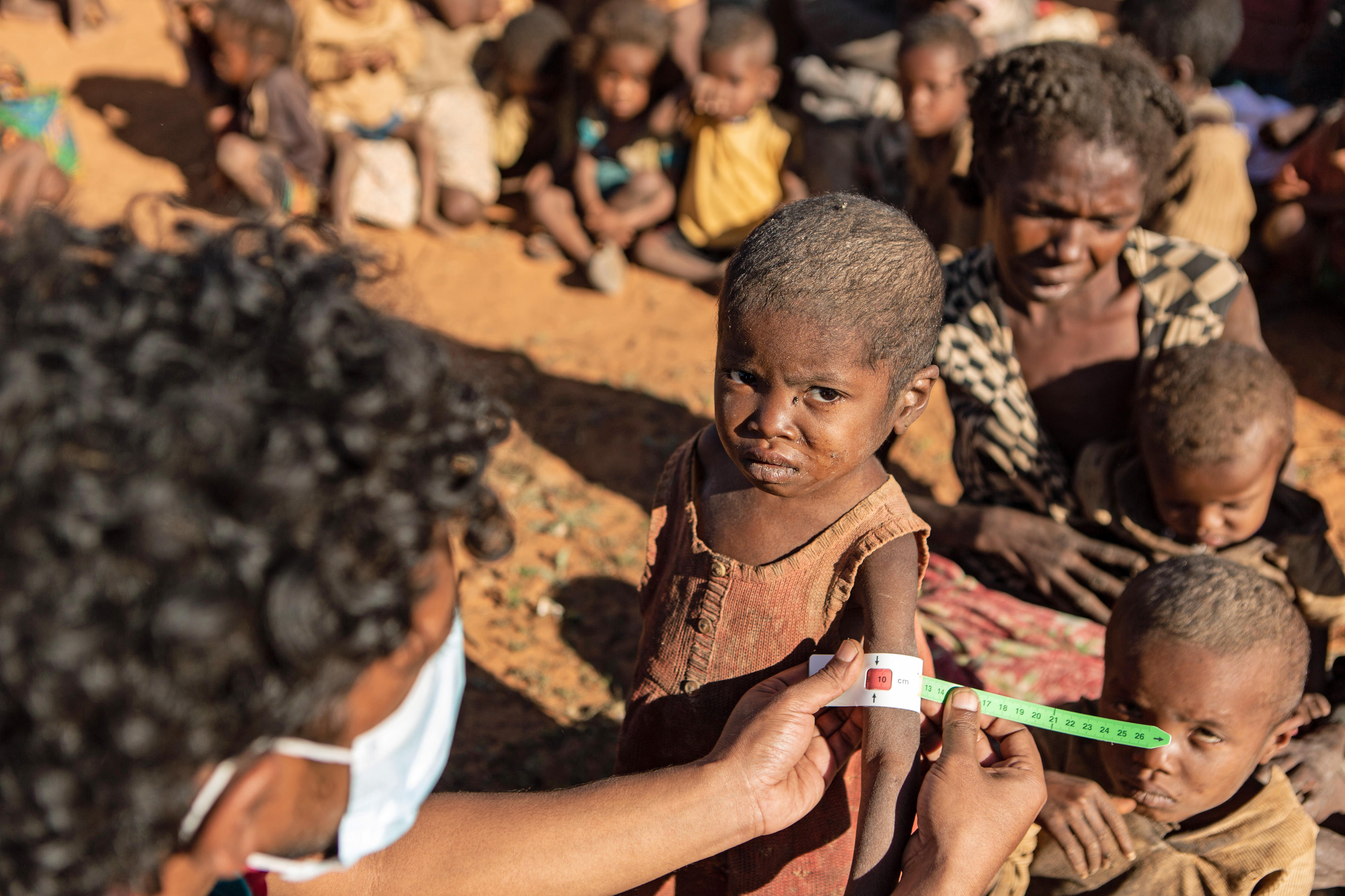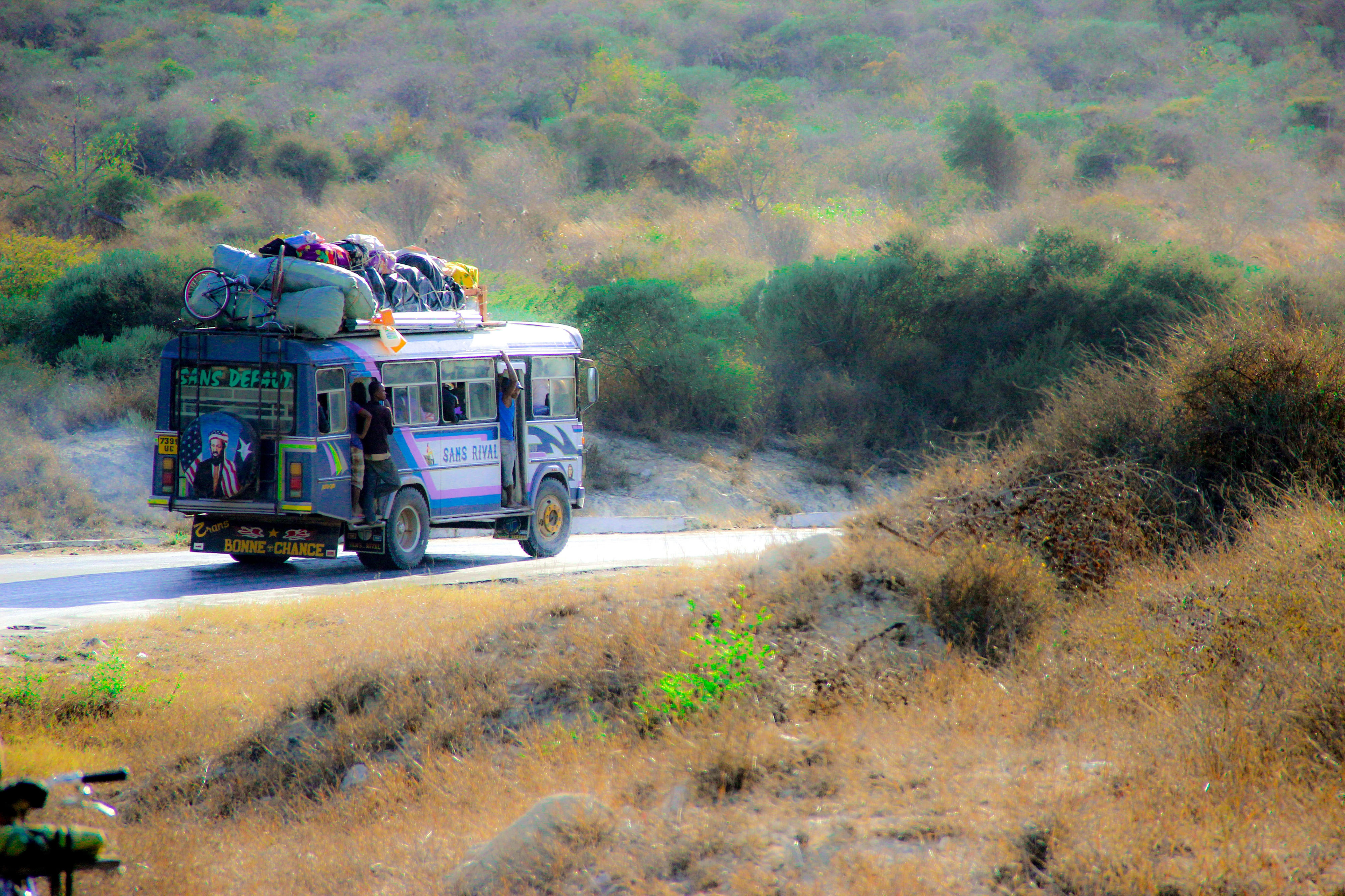Baobabs in Madagascar
Copyright© Rod Waddington, via flickr, CC BY-SA 2.0
Madagascar
While the country is rich in resources and fertile land and has great potential for renewable energy generation, decades of economic problems, deficits in the field of governance and widespread corruption have led to a situation which is now, in some areas, disastrous. Madagascar is among the world's least developed countries. More than three quarters of the people live in extreme poverty.
Large parts of the country's unique natural heritage have already suffered severe damage as a result of human intervention. Most of the island used to be covered by rainforest, but only a fraction of that forest has survived.
Madagascar is also particularly vulnerable to natural disasters such as cyclones, floods and droughts. They often destroy harvests and cause considerable damage to the country's infrastructure, threatening people's livelihoods. Climate change has been exacerbating the frequency and intensity of natural disasters. Madagascar has contributed very little to climate change. Carbon emissions per capita are still very low.
Hunger crisis in the south
Southern Madagascar is experiencing a severe hunger crisis, caused by short-term but also structural factors. The worst drought in 40 years has led to harvest loss, dust storms, and sand piling up on the land. The south is the poorest and least developed region of Madagascar. The impact of climate change is particularly dramatic in this part of the country. The situation of the people has been exacerbated by increased food prices as a result of high inflation following Russia's attack on Ukraine and of crop loss due to cyclones.
According to the Integrated Food Security Phase Classification (IPC (External link)) data platform, some 1.72 million people in Madagascar are affected by food insecurity and malnutrition (as at beginning of 2024) and are in need of humanitarian aid.
German development cooperation with Madagascar
Sustainable vanilla cultivation in Madagascar
Germany supports the efforts of the people of Madagascar to make greater use of local development potential. German development cooperation with Madagascar began in 1962. In response to a coup in 2009, Germany – along with the European Union and all EU member states – suspended its intergovernmental cooperation with Madagascar. Following the coup, Germany's activities were limited to projects that directly benefited people locally.
After Madagascar had returned to democracy, the EU lifted the restrictions in 2014, and Germany resumed its bilateral development cooperation with the country. The first bilateral government negotiations since 2007 were held in December 2021. Since then, negotiations have been held regularly every two years again, the most recent round having taken place in May 2023. On that occasion, Germany committed 47 million euros to its partner country.
The overarching goal of Germany's development cooperation with Madagascar is to combine effective nature conservation with the sustained improvement of people's living conditions. This is intended to reduce poverty while simultaneously protecting the island's unique biodiversity.
Core areas of cooperation
Germany's development cooperation with Madagascar focuses on the following core areas:
- Conserving nature and natural resources, protecting life on Earth
Areas of intervention: biodiversity; forests - Transformation of agricultural and food systems
Areas of intervention: food and nutrition security; agriculture - Climate and energy, just transition
Area of intervention: renewable energy and energy efficiency
The BMZ also supports activities in the field of good governance. In this area, it funds projects for pro-poor municipal development through increased decentralisation, higher municipal revenues, and local infrastructure development. The BMZ is also engaging in joint efforts with the EU, France and Monaco to strengthen the capacity of Madagascar's civil society and to reinforce local anti-corruption efforts.
In response to the current hunger crisis in southern Madagascar, the Federal Foreign Office is providing humanitarian assistance.
The Federal Ministry for Economic Cooperation and Development (BMZ) has increased its activities in the southern region in the last few years with a view to improving the resilience of local communities and addressing the structural causes of the crisis. In 2023, the BMZ started a joint programme with the United Nations Children's Fund (UNICEF) and the World Food Programme to improve food security in the region. So far, 28.5 million euros has been committed for this programme. Germany is also providing funding for school feeding programmes and water and hygiene measures, and it is assisting smallholders in their efforts to adapt their farming methods to climate change.
SDG trends for Madagascar
- On track or maintaining SDG achievement
- Moderately improving
- Stagnating
- Decreasing
- Trend information unavailable
